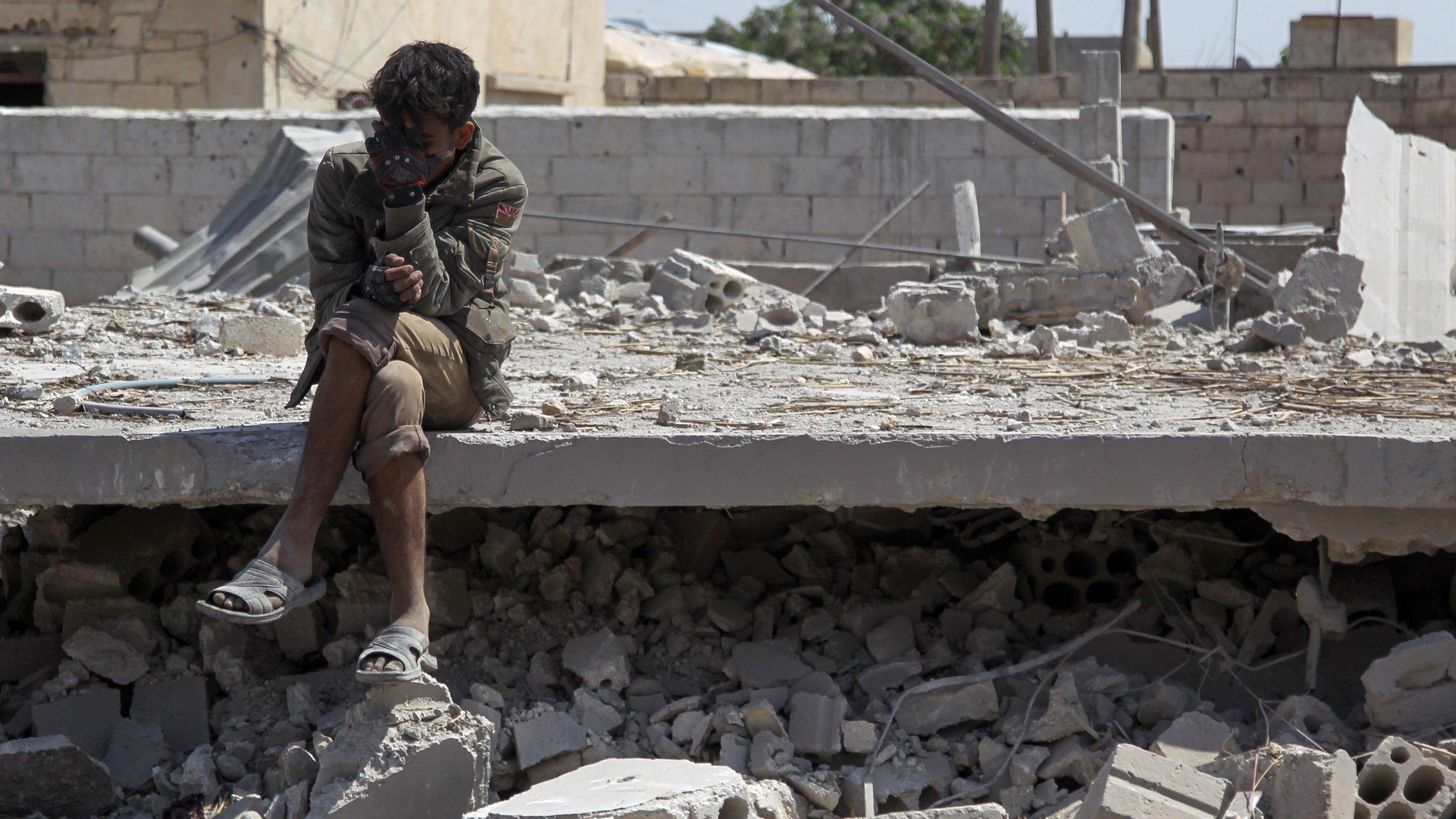Seeking asylum: 'Trusting our lives to people smugglers'
- Published
Hazar Almahmoud undertook the dangerous Aegean Sea crossing to reach Europe
The stories of five people who fled persecution in their own countries and found sanctuary in Wales are being told via a virtual reality exhibition in Cardiff.
Each of the five million Syrians who fled their homes due to the country's civil war have their own stories to tell.
Hazar Almahmoud risked crossing the Aegean Sea for the sake of her daughter - Here she tells the story of their journey to safety
It was Hazar Almahmoud's motherly instinct to protect her daughter which made her take extreme risks to reach safety.
Working as a university administrator in the port city and government stronghold of Latakia, her life was turned upside down when she joined the protests against President Bashar al-Assad.
Because Latakia is close to the town of Qardaha, where the president's father was born, any shows of dissent there were crushed.
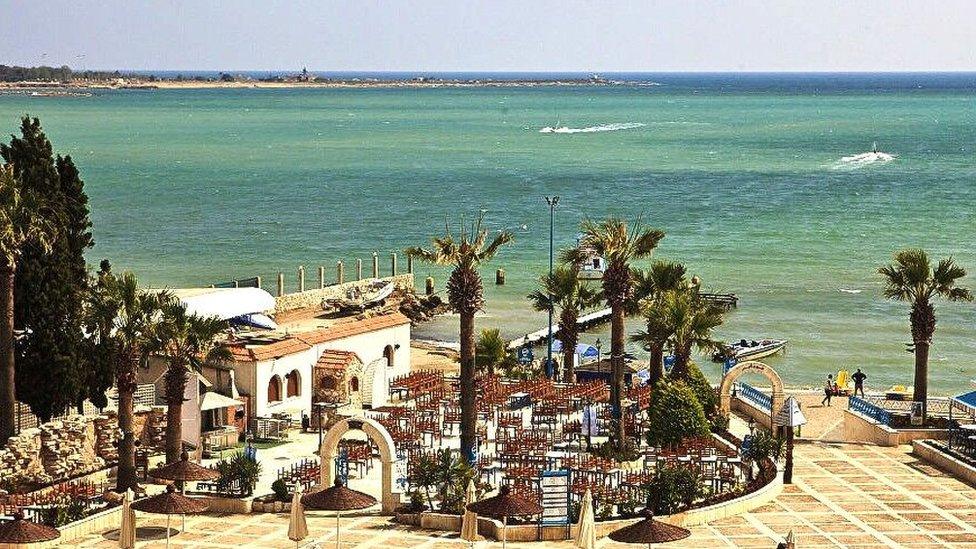
The Syrian city of Latakia, where Hazar and her family lived
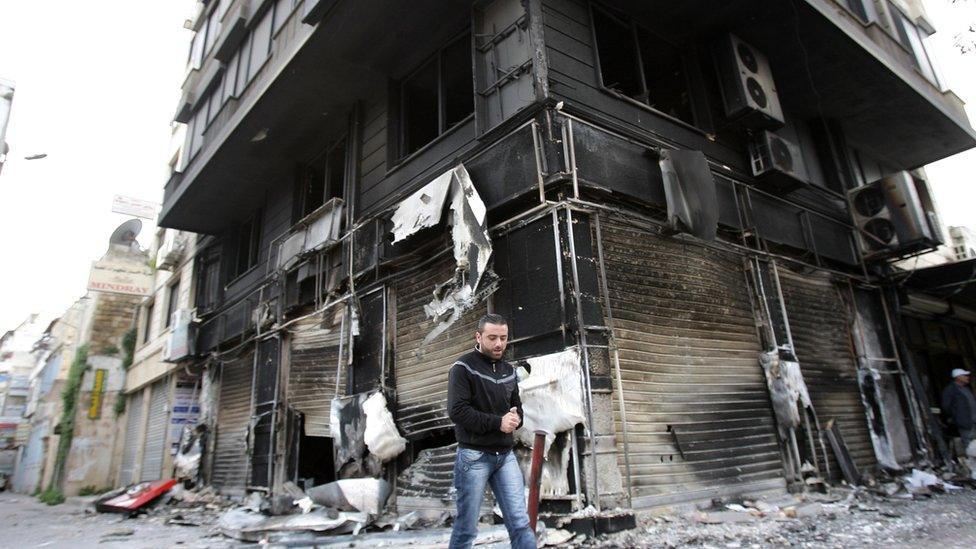
Damage caused by bombing in the Syrian city of Latakia
"When you see people protesting peacefully and the regime's soldiers coming to shoot at them because they are asking for freedom, you have to act," said Hazar.
"I saw dead people on the floor, killed just for protesting. It was a bad moment and a good moment for me. The protests were good but it was horrible to see people suffering."
Because of her support for pro-democracy activists, Hazar was questioned twice and told to keep her views to herself or she would lose her job. Many of her friends and neighbours were imprisoned or killed.
As the Syrian civil war developed, Latakia was increasingly caught in the middle of fighting between the Free Syrian Army and government forces.
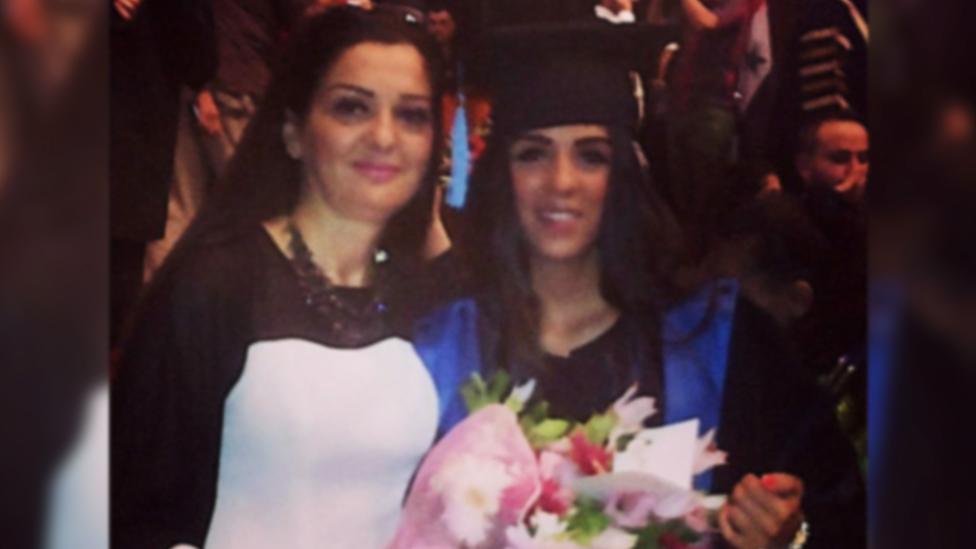
Hazar Almahmoud, left, at her daughter Luna's graduation in Syria
Although frightened, Hazar says she learned to tolerate the shelling and gunfights. Her decision to flee her hometown came when she thought about her daughter Luna, then aged 25.
As the country descended into chaos, armed gangs would snatch young people, demanding ransoms from their families to return them. Young women were also regularly abducted and raped.
Hazar said: "My daughter is young and beautiful. I thought that if I stayed in Syria maybe something bad will happen to both of us but first because I'm a mother, I care about her and her life, so I made up my mind to leave.
"At first she said she didn't want to go, to leave her family and friends, and she cried. But my mother's feeling was that I could not stay anymore. We were a country at war and they could have closed the borders. We didn't know what would happen next."
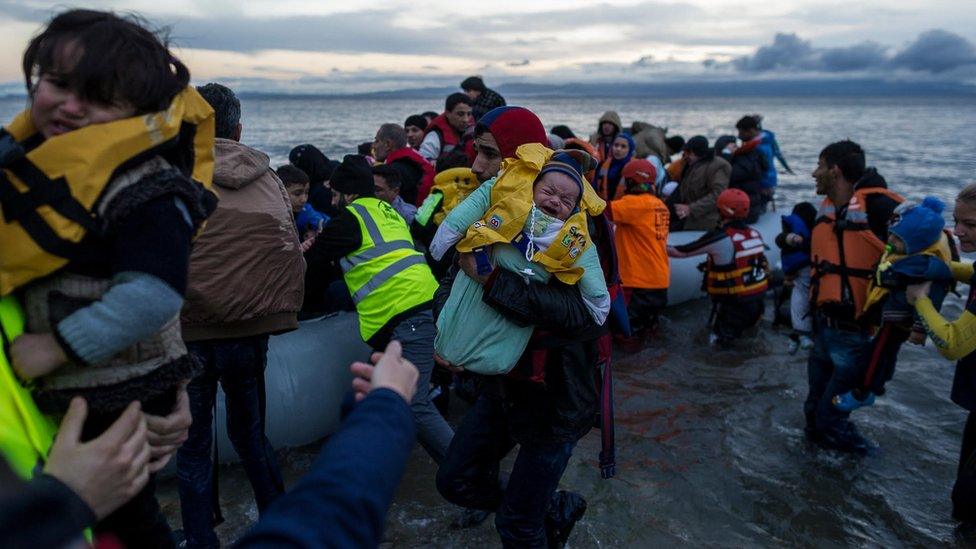
Migrants arrive on the Greek island of Lesbos
Collecting enough belongings to fill a backpack and carrying cash taken from her savings account, Hazar took Luna to Lebanon by car, then flew to Turkey. In the city of Izmir, they joined thousands of others trying to get to Europe.
"All the refugees gathered near a public square in Izmir and the smugglers would go around offering to take people. You didn't need to look for them, they were all around us.
"You can't trust anybody there but you just have to do it. You don't even know the smugglers' real names. Maybe you will drown, or maybe you will be killed and someone will take your money. You just have to take a chance."
Having paid nearly $6,000 (£4,700) for the pair of them to cross to Greece, Hazar and Luna were hidden below the decks of a boat with about 70 other people while the smugglers navigated the Aegean Sea, keeping an eye out for the coastguard.
Below deck, many people were seasick and one man even had a heart attack. In Greek waters, the conditions became choppy and the boat's movements became violent.
"I started trembling and thought we were going to die," said Hazar. "I looked at my daughter and thought 'what have I done, we are going to die before we even get to Greece'. I felt so guilty."
They reached the shore safely and were soon standing on the Greek island of Agathonisi. The journey was far from finished though.
With family in the UK, Hazar was keen to reach England but that meant more expense.
Another smuggler, in Belgium, took more than 7,000 Euros from the pair in return for fake passports. Once they landed at Heathrow, Hazar revealed their true identity to Home Office staff and applied for asylum.
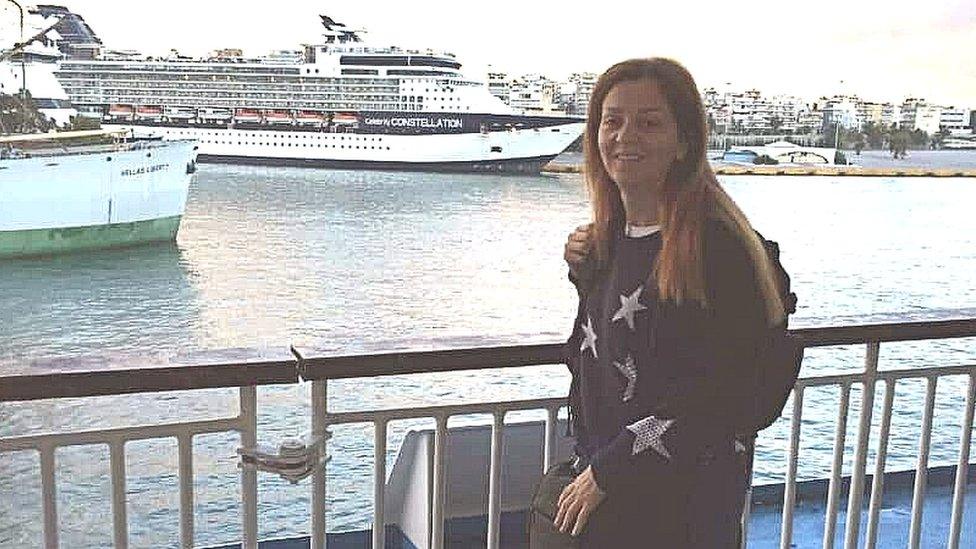
Hazar on arrival in Greece after crossing the Aegean Sea
Hazar had been to the UK on a holiday 20 years before she arrived as a refugee, but knew little about Wales, where she was sent by the Home Office.
"I have family in Colchester in Essex and I wanted to be near them, but I was told I had to go to Cardiff or Leeds.
"I chose Cardiff but all the way there on the journey from London I cried because I realised how far away from my family I would be."
Despite her misgivings, Hazar quickly adopted the Welsh capital as her new home after being granted asylum. She had various jobs and volunteers at the Welsh Refugee Council in Cardiff, helping other refugees.
"The people here in Wales are very friendly, very warm," she said Hazar. "They remind me of the people back home in Latakia.
"I feel people here are more friendly than in England. Now when my sister says 'come join us in Colchester' I say 'no, you come and join me here'.
"I'm fully integrated here and I'm fine. I can plan my future."
The Freedom 360 exhibition, external with the Welsh National Opera will run from 7 to 30 June at the Wales Millennium Centre in Cardiff. Visitors will be able to experience the stories of persecuted people from across the world who have found sanctuary in Wales.
- Published4 June 2019
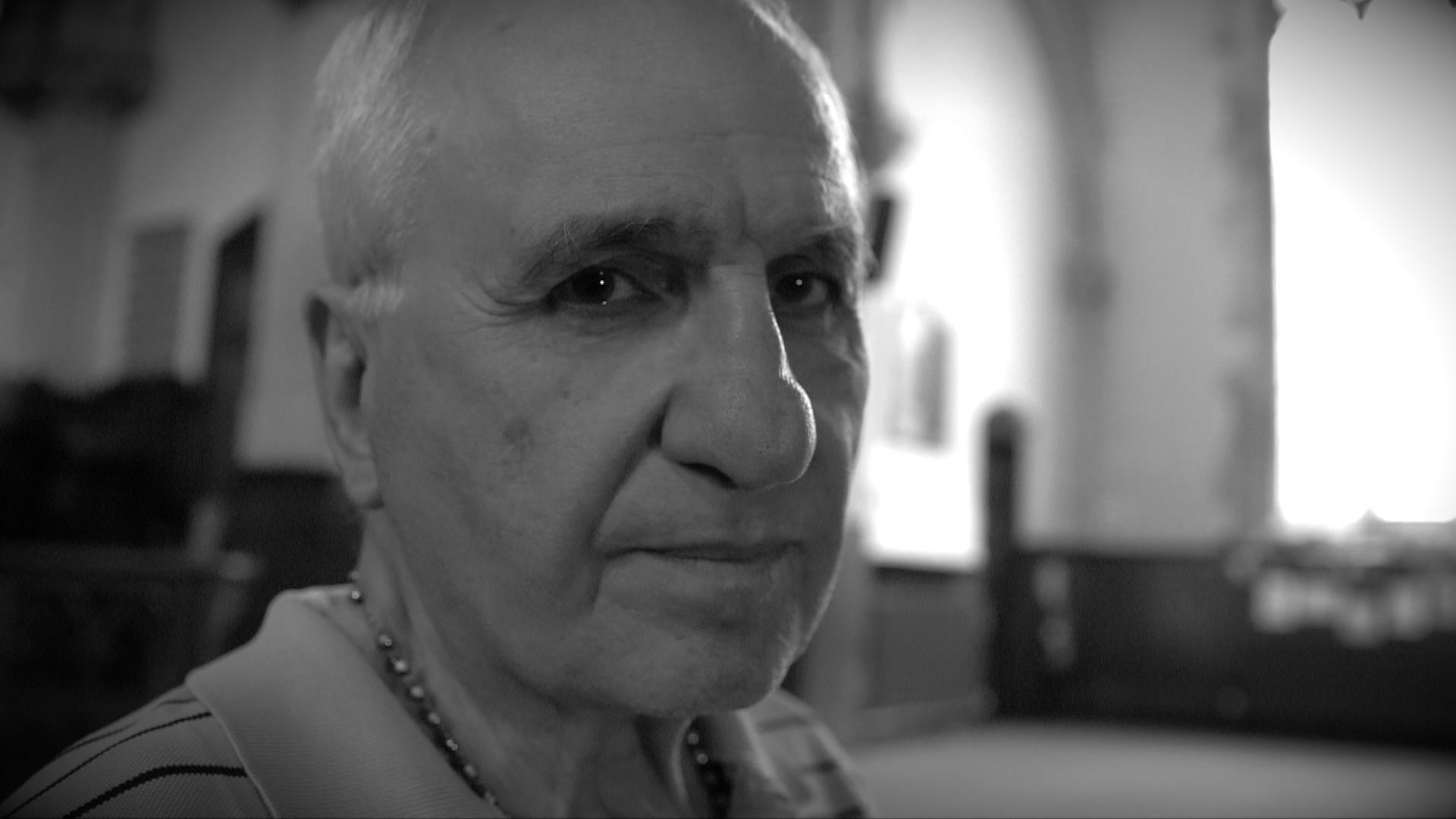
- Published9 December 2024
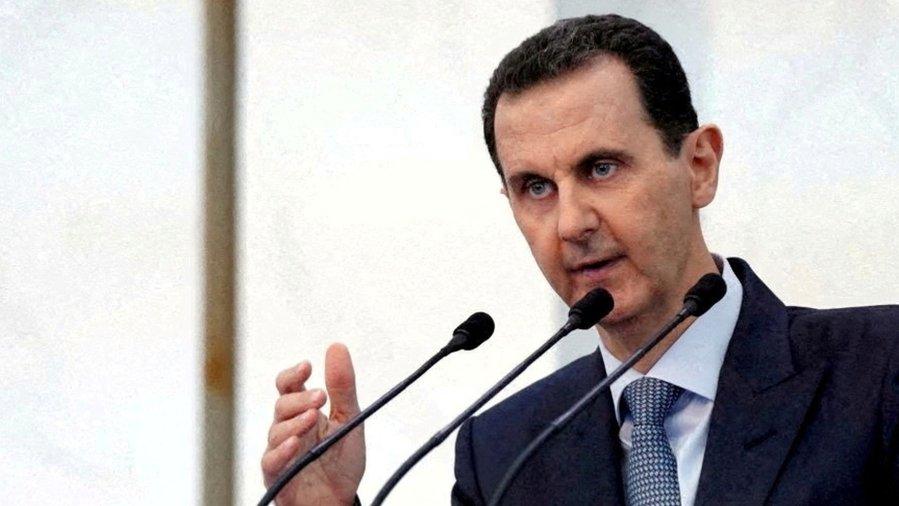
- Published7 May 2019
